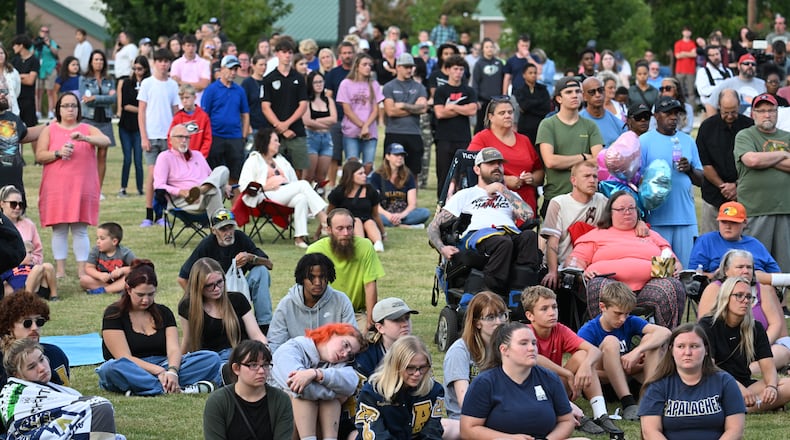On Wednesday, tragedy struck the community of Winder — only a short distance away from my home in Atlanta. When the initial shock and devastation of gun violence shatters a school community so close to home, one of the biggest questions facing parents, educators and the community is how to help youth overcome the profound trauma and lasting impact of what they’ve experienced.
Nothing prepares us for these conversations, nor the complex emotions that follow a school shooting. But as trusted adults, there is much we can do to be the guiding light our young people need.
Credit: BETH MADISON PHOTOGRAPHY
Credit: BETH MADISON PHOTOGRAPHY
A trusted adult can be anyone who serves as a constant, dependable source of support for young people — for example, a family member, teacher, neighbor or coach. What students need most in these times of crisis are for their trusted adults to be present, to listen and to believe in them.
With empathy in hand and compassion in our hearts, we as trusted adults will find the right words to help our young people overcome tragedy. Everything begins by establishing a safe space to have challenging conversations in open and understanding ways.
Safe spaces for challenging conversations
Each child processes trauma in unique ways, and there is no set script for us to follow as we talk to them about what they’ve experienced. But there are a set of “best practices” we can follow to help them through these challenging moments:
- Model compassion. It’s OK if you don’t have all the right answers or the “right” things to say to a child. In fact, it’s more important that you listen and provide validation. Focus on the present moment without judgment or evaluation. A child who truly feels heard will also feel truly supported. Don’t try to offer suggestions as if you were solving a problem. Instead, just listen to them. Make eye contact. Let them know that you’re there and their concerns are heard. They are looking to you as a guide, and this is a time to model identifying and communicating emotions. When you’re able to provide a sensitive, open and age-appropriate tone in how you interact with them, youth will embrace this modeling as they navigate this tragedy.
- Self-compassion matters, too. Trusted adults must have compassion for themselves as well. You might not be able to help with everything, and that’s OK. Again, it’s more important to be a present, constant source of support. And that can be possible only by also giving yourself some grace and being mindful of your feelings. Remember that there are community resources you can lean on to address the grief and concern you are feeling.
- Provide space for questions. A child who has just experienced a trauma might have many different types of questions about what has transpired. Some might not have questions at all, and that is OK, too. Ask them what they understand about the tragedy and let them set the pace with any questions they may have. Maintain a nonjudgmental environment where your conversation can unfold slowly and calmly.
- Routines matter. One of the biggest outcomes youth carry after a tragedy is great uncertainty. Their world has been upended. But when we as trusted adults maintain consistency in our routines and structure, that provides an excellent framework for support and recovery. Keeping a regular routine will provide a sense of comfort and safety. Some routines might need to adjust based on what the young person expresses.
- Encourage expression. Let your children know that it’s normal to have complicated feelings. They might be angry, upset, scared or have any other combination of mixed emotions. That’s completely natural, and it’s perfectly fine to express these feelings in healthy ways. Consider providing opportunities for creative expression such as art or music, continued conversation and other activities to help them process these feelings.
- Follow their lead. Monitor for cues that children might need a break from the conversation and allow them space for their own quiet time or regular activities, such as playing, eating or time with friends. All individuals will need time and space to process emotions and cope, and in time they might wish to continue these conversations. That space is essential for healing and should be given freely.
Be a beacon of hope
Together, as trusted adults, we can create a safe and supportive environment for our young people to heal. By modeling compassion, providing space for questions and fostering mindfulness, we can help them navigate the complexities of their emotions during these exceptionally difficult situations.
Though the road to recovery might be different for every child and community, our unwavering support and belief in resilience will serve as a beacon of hope. Through open communication, empathy and understanding, we can empower our children — and each other — to overcome and emerge stronger than before.
Crystal Garrant is a Georgia resident, mother of a fourth-grader and the chief program officer for Sandy Hook Promise, a national nonprofit organization whose mission is to educate and empower youth and adults to prevent violence in schools, homes and communities.
About the Author
Keep Reading
The Latest
Featured




